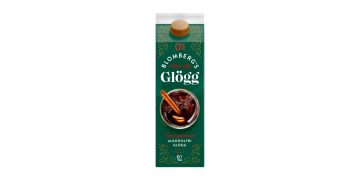Focus and productivity are poised to become the next benefits that consumers will seek from food and drink products, as discussed in Mintel’s 2023 Global Food and Drink Trend ‘Staying Sharp.’ According to Mintel Global Consumer research, 40% of US consumers would ideally like their diet to help maintain healthy brain function. However, only a third (32%) of US consumers who buy nuts, seeds, or trail mix say they would buy more of these products if they support brain health.
“Brands have an opportunity to help consumers optimize their mental performance, but there is work to be done. Our research shows that fewer consumers would like their diet to ‘help maintain healthy brain function’ (40% of US consumers) or ‘improve mood’ (26% of Canadian consumers) when compared to more familiar benefits like ‘strengthen the immune system’ (55% of Mexican consumers). Interest in mental and cognitive benefits is modest, but growing. Consumers need encouragement to try these products, creating an opportunity for brands to get consumers excited about brain and mood health benefits,” said Stephanie Mattucci, CFS, Director, Mintel Food & Drink Research.
Taking the stage at IFT 2023, Matucci discussed natural caffeine and B vitamins (among others) as ingredients that offer focus and clarity and support brain health in the next wave of functional food and drink launches to watch.
Alternative caffeine
Caffeine is a familiar ingredient: 55% of US consumers currently eat or drink products with caffeine, with 83% of them consuming caffeine at least once per day. New sources of caffeine that lessen the negative effects can win over concerned coffee drinkers, given that 66% of Italian coffee drinkers agree that drinking a lot of it is bad for you. While coffee dominates caffeine ingredients in brain-supporting launches (14% of global food and drink products with caffeinerelated ingredients launched in the last five years* carried a brain/nervous system claim), new sources of caffeine are emerging, such as guarana, yerba mate and guayusa, and are often positioned as ‘natural caffeine.’
“Consumers value caffeine’s mental energy boost but express concerns about its overall health impact, creating opportunities for new caffeine ingredients and blends that offer sustained energy and fewer side effects. Brands that educate consumers about these less familiar sources of caffeine stand to benefit. Quantifying the amount of caffeine per serving or explaining that blends help reduce side effects and introduce new benefits builds trust and engagement between consumers and the brand,” continued Mattucci.
B vitamins
Mintel research indicates that B vitamins can be a safe choice for consumers, especially if brands continue to build a connection between B vitamins, energy, and overall health. B vitamins are widely used in products with an energy claim and can continue to grow by becoming affiliated with brain benefits. Nearly half (45%) of global food and drink launches with a brain/nervous system claim contained a B vitamin in the past five years*. Two in five (37%) global food and drink launches with an energy functional claim* contained a B vitamin.
“Natural sources of B vitamins can be positioned as safe nutrients for mood and cognitive health. B vitamins support metabolism and contribute to the body’s ability to produce energy as well as support neurotransmitters, which play a key role in mood and mental health. Brands that tap into the familiarity of B vitamins can lend credibility to their products with other brain-boosting ingredients.”
“Food and drink brands looking to optimize mental performance ingredients and benefits must first tap into the familiar. Brands need to reassure consumers about the concept of eating for their brain by starting with foods and nutrients consumers know and feel safe consuming. Experimentation with novel brainboosting ingredients will take time and trust. As consumers become familiar with this concept, they will next turn to food and drink that can support cognition, manage stress levels, and optimize brain function. This presents brands with an opportunity to pair ingredients that can help consumers cope with stress with those that support mental clarity. This leads to a third area of opportunity in the space, harnessing the synergistic power of blends with the goal of reducing undesirable side effects and optimizing cognitive benefits,” Mattucci concluded.




















